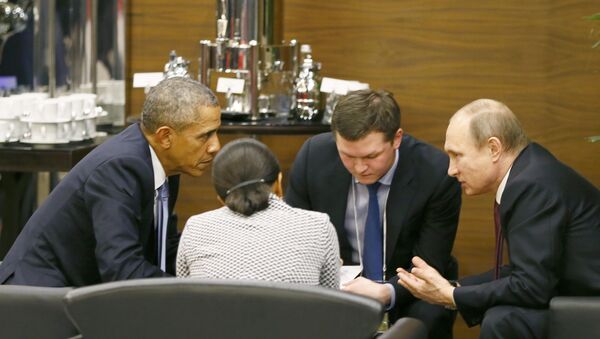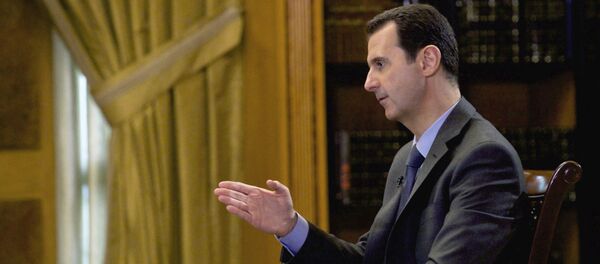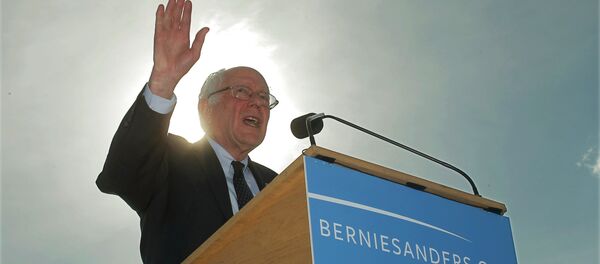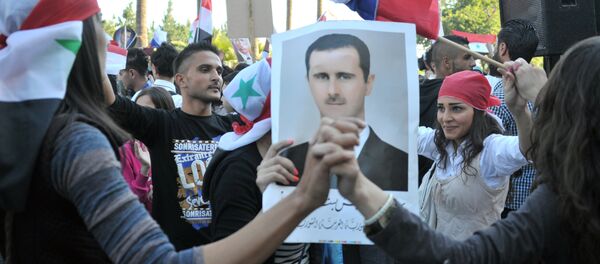Despite polarized attitudes between Russia and the West, the attacks on Paris created a dramatic realignment between the two sides, much greater than that of the September 11, 2001 attacks against the US.
Russian President Vladimir Putin originally proposed a global war on terror to then-US President George W. Bush, in which Russia and the US would unite against terrorist groups across the world. The idea was dismissed at the time, as Russia's Chechnya conflict was seen as its own doing, while its military was too weak to take part in major operations.
With the Paris attacks, mainstream media in the West began to look at its own role in fomenting jihadist terror, while Russia's role in Syria began to show that it could be an important partner in a coalition against terrorism.
"Whereas after 9/11 the problem was that we didn’t have a strategy to fight terrorism, after 11/13 the problem is that our strategy doesn’t appear to be working," conservative US columnist Matt Purple wrote in the National Interest.
"The strike against the Twin Towers was a strike in the head, someone else's at that. The strike at Paris was a strike in the heart," Kashin wrote.
While the realignment could be framed from a "Putin wins again" perspective often seen in Western media, it is really more of a mending of faults on both sides.
Profile Picture
The attacks in Paris came in the midst of outrage in Russia over cartoons published in Charlie Hebdo, seen as disrespectful to victims of the Metrojet A321 disaster. More disagreement in both social and traditional media came over the use of Facebook profile pictures with the French flag overlay, and general treatment of attacks against Russia as the result of its policies.
Carnegie Moscow Center's Alexander Baunov looked at the issue through the lens of postcolonial literature.
"In what the Indian writer V.S. Naipaul called an 'area of darkness,' tragedy and disaster are regarded as everyday occurrences, while in other parts of the world—areas of light—tragic events are viewed as an aberration," Baunov wrote.
With the attacks in Paris, the borders of this "darkness" have shifted beyond political borders, according to Baunov, and the old political differences are no longer an effective divider.
Possibly because Charlie Hebdo's editor knew that the cartoons gathered a lot of traffic from Russia (the website had 41.2% of visitors from Russia versus 13.9% from France according to Alexa), the cartoons used many French stereotypes that would be apparent to foreigners.
The lack of a clear reaction from Russians could mean that "tout est pardonné" (all is forgiven), as the Charlie Hebdo cover said after the deadly shootings against its office in January.
Having to choose between the "war on terror" with the "new cold war" is an important decision for Western policy makers, conservative US columnist Mark Purple wrote.
"The United States toppled Saddam Hussein and Moammar Gaddafi, and in doing so helped annihilate the old order across a broad section of the Middle East. ISIS is now a heavyweight contender for the new order," Purple said, suggesting working with Putin and Syrian President Bashar Assad, or finding a middle ground where Assad is transitioned out.
The idea has also spread to the liberal end of the American political spectrum, where presidential candidate Bernie Sanders called for a new NATO which includes Russia rather than works to counter.
"We must create an organization like NATO to confront the security threats of the 21st century. <…> We must work with our NATO partners, and expand our coalition to include Russia and members of the Arab League," Sanders said in a speech at Georgetown University.
These changes were treated very negatively in Eastern European states, which in the past decade worked to create a narrative where they are the focal point of a "Russian threat" against the West.
The articles reflected the Polish establishment's basic fears of Russia, from the Nord Stream 2 pipeline, which would route gas supplies to Western Europe through the Black Sea, to Ukraine's conflict, in which Poland's government has hoped to win influence, or at least strengthen its military partnership with NATO.
However, the choice of whether it wants to fight terrorism or engage in a "culture war" with Russia over differences which evaporate with the next major terrorist attack, still remains up to the US and its Western European partners.






